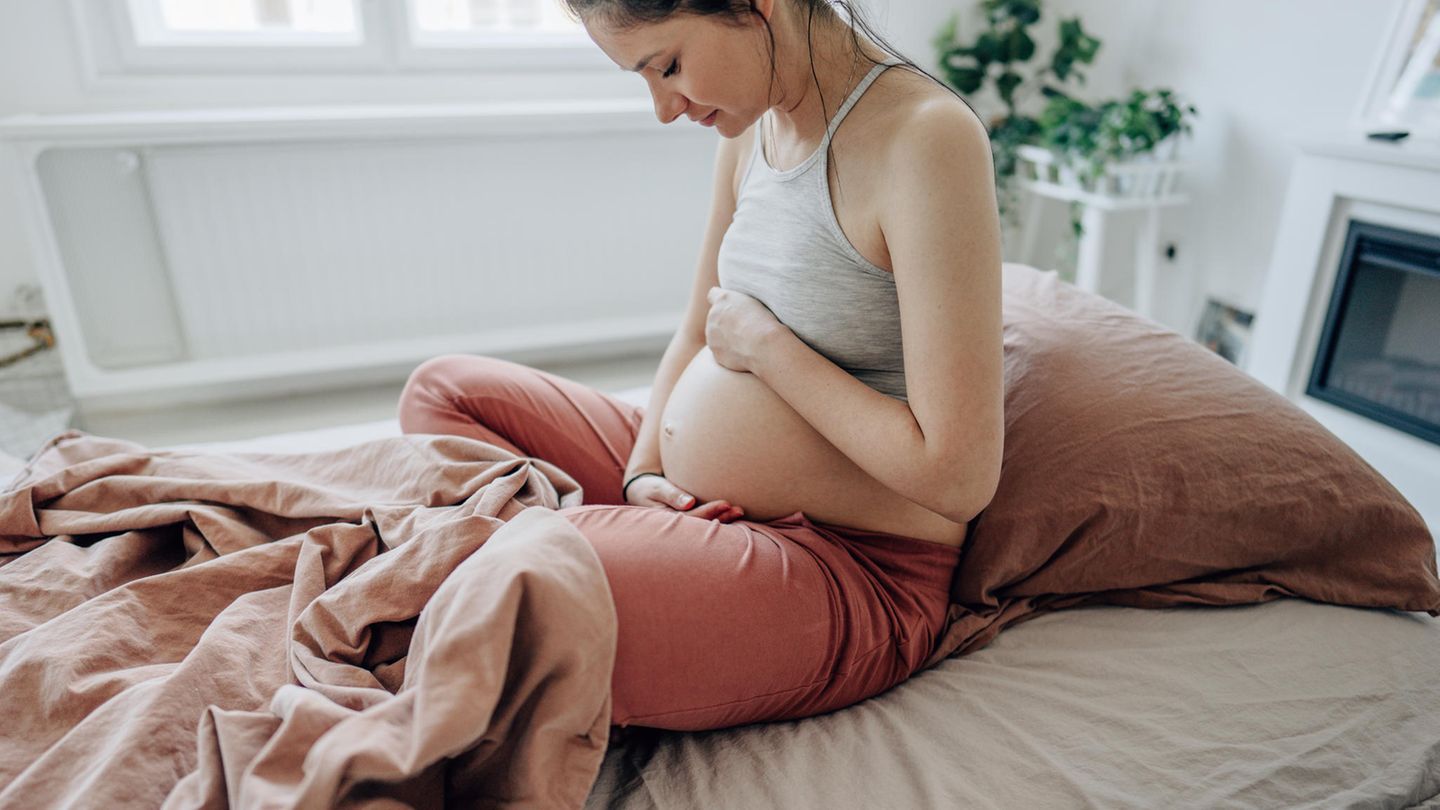According to a British study, pregnant women are now more seriously ill with corona infection than they were a few months ago. The data also show how much pregnant women benefit from vaccinations.
Pregnancy in the midst of the pandemic: This inevitably raises the question of whether or not to get vaccinated against the coronavirus. The Standing Vaccination Commission (Stiko) has not yet made a general recommendation. However, the vaccination can be used by pregnant women – for example if they have certain previous illnesses or if they cannot protect themselves optimally against infection due to their living conditions. A so-called mRNA vaccine is then used from the second trimester of pregnancy.
Whether vaccination is recommended across the board for certain population groups depends on various factors: How safe and tolerable is the vaccine? How great is its benefit? And how serious is the course of the disease that the vaccine is supposed to prevent? A recent study from Great Britain provides further information on the last question.
More severe disease courses among pregnant women
comes to the conclusion that pregnant women are now more seriously ill with Covid-19 than a few months ago. The observation coincides with the spread of new virus variants such as alpha and delta.
For the study, the research team led by Nicola Vousden (University of Oxford) evaluated data from 3371 pregnant women from Great Britain. They were all known to have been infected with the coronavirus and showed symptoms. Corona disease was not the reason for hospitalization for all of them – some of the sick women were about to give birth.
The proportion of women who developed moderate to severe symptoms increased “significantly” with the spread of new virus variants, the researchers write. Since information was not available for every woman as to which virus variant she was suffering from, the scientists oriented themselves to periods in which individual virus variants were particularly dominant.
So they concluded that women who were treated in hospital between the beginning of March and the end of November 2020 are very likely to contract the Original variant of coronavirus infected, the so-called wild type. The researchers brought with them the period from the beginning of December 2020 to mid-May 2021 Alpha infections in connection; the weeks from mid-May up to and including July 11, 2021, finally with that which is considered to be particularly contagious Delta-Variant.
At the beginning of the study (wild type period), the proportion of moderately to seriously ill women was 24.4 percent and rose to 35.8 percent during the alpha period. Most recently, the value climbed to 45 percent (delta period). Compared with the wild-type period, pregnant women in the alpha period also required more support with breathing (27.2 vs. 20.3 percent), they developed pneumonia more frequently (27.5 vs. 19.1 percent) and had to be on the more frequently Intensive care unit (11.3 vs. 7.7 percent) are treated.
Pregnant women who were admitted during the delta period also developed pneumonia somewhat more frequently – in 36.8 percent of the cases compared with 27.5 percent in the alpha phase. With all these percentages, however, it should be noted that they do not refer to the totality of all infected pregnant women, but to the women examined in the study who were already showing symptoms and were being treated in a hospital.
It was also noticeable: between the beginning of February 2021 and mid-July 2021, no fully vaccinated pregnant women with a coronavirus infection were admitted to hospital. It is not possible to make any statements about an earlier period, as the collection of information on the vaccination status did not begin until the beginning of February.
Overall risk for pregnant women “low”
In Great Britain, the corona vaccination has been recommended for all pregnant women for several months. Risk factors for severe courses include, among other things. Obesity and age over 35 are also listed as risk factors by the British Public Health England (PHE).
The authority emphasizes that the overall Covid-19 risk for pregnant women and their children is “low”. Nevertheless, infected pregnant women are more at risk than women of the same age who are not pregnant. In particular, in the last weeks of pregnancy, sick women could be dependent on hospital treatment.
Andrew Shennan, professor of obstetrics at King’s College London, spoke to the Science Media Center of an “important study”. The fact that no vaccinated woman was hospitalized underscores the importance of vaccination during pregnancy, said Shennan. It is also “likely” that the virus variants also lead to more severe courses in other population groups. In this study, however, only the course of the disease in pregnant women was examined.
However, caution should be exercised in interpreting the data. On the one hand, it is a so-called preprint study – the results have not yet been checked by independent experts. On the other hand, the researchers cannot unequivocally rule out that individual pregnant women were not infected with other virus variants after all, or that other factors could have influenced the severity of the disease or the treatment, such as changed admission criteria in the clinics.
The research team checked several of these potential factors, including existing pre-existing conditions in the women. “They came to the conclusion, however, that the women included in the study were treated equally and that it was the later variants that had led to the more severe courses,” emphasizes Shennan.
/




